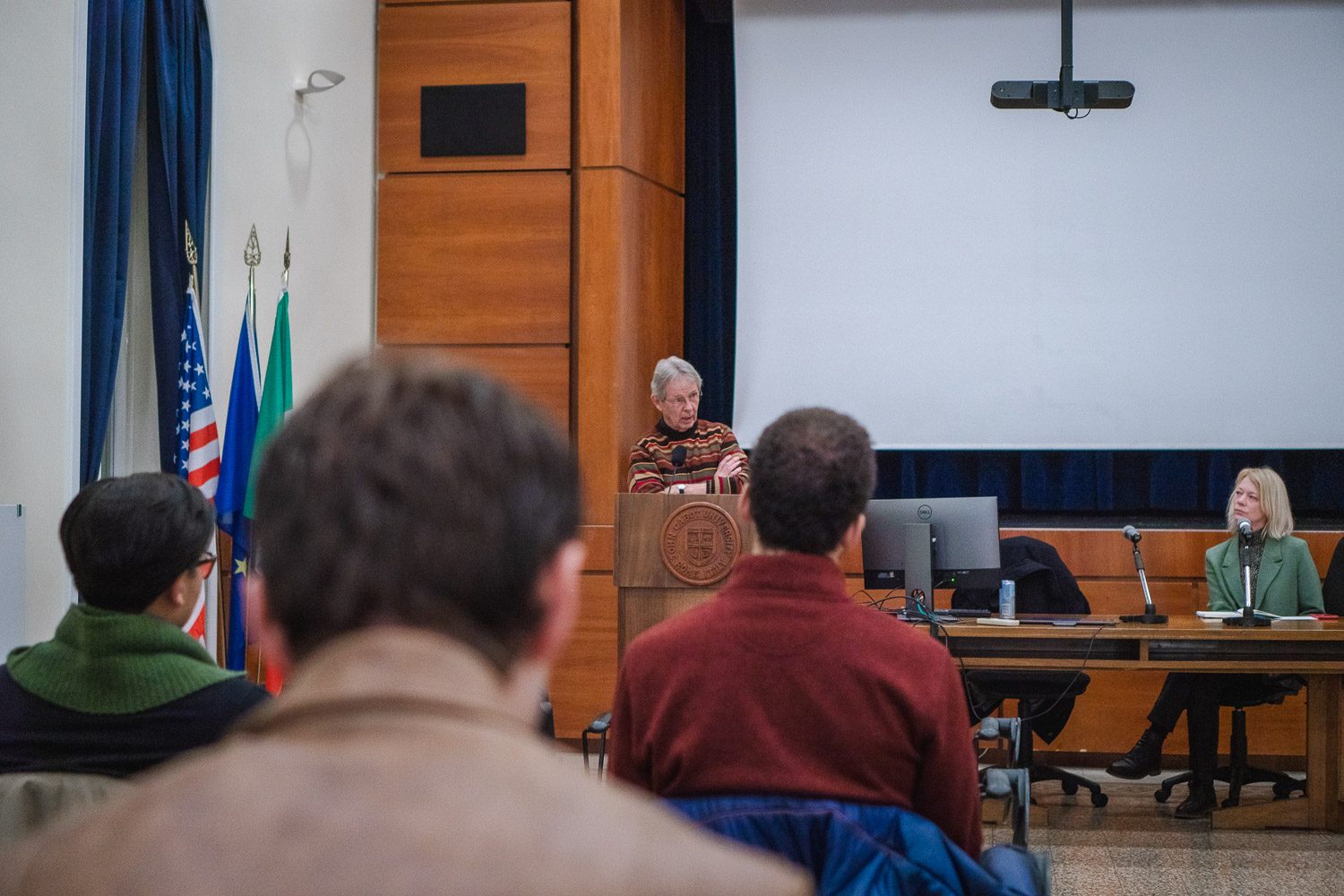Security Assistance to the Middle East: A Lecture by Professor Robert Springborg
On January 24th the Department of Political Science and International Affairs welcomed Professor Robert Springborg for a guest lecture called “Security Assistance to the Middle East: Revisiting a Cold War Legacy in Light of Hybrid Challenges.” The lecture was part of the JCU seminar series, Rome Security Dialogues. The event was moderated by Political Science and International Affairs Professor Simone Tholens.

Security Assistance to the Middle East
Springborg is Professor Emeritus of National Security Affairs at the Naval Postgraduate School in Monterey, California, as well as Scientific Advisor of the Istituto Affari Internazionali in Rome, Italy. Springborg discussed the challenges security assistance faces in an ever-changing world, and how to better provide this type of assistance to the Middle East.
Security assistance is the on-the-ground development from one country’s military to another, including education, training, and the supplying of weapons. This helps to form relationships and alliances between militaries as a way to further political interests and reach security goals. Security assistance flourished during the Cold War, but Springborg noted that since then there have been new challenges.
One of these challenges is something he referred to as the “Democratic Paradox.” According to Springborg, Western democracies are providing security assistance to some of the most authoritarian regimes in the world. Due to the vast differences between the two political systems, he says there is a lack of trust on both sides, and this creates problems when it comes to giving and receiving directions.
The other challenge Springborg pointed out is that the recipients of security assistance, like those in the Middle East, have changed since the Cold War. They are no longer tied to one relationship, they have the ability to bargain for the best providers, the best deals, and the most advanced weapons. This makes it more competitive and expensive for the providing countries.
Springborg touched on several suggestions provided by experts in the field to bring security assistance into modern times and tackle these problems. One of them is the three D’s, or democracy, development, and diplomacy. Springborg says that rather than allocate all the resources into providing weapons, militaries need to put money and time into the three D’s in order to get the best results.
Springborg also talked about the war in Ukraine and the lessons that can be taken away from it. He pointed out that Ukraine has done well at working together with civilians and in every aspect of defense. This is something, Springborg says, that can be applied to the Middle East as a way to create institutional militaries that work cohesively with each other.
Springborg concluded by sharing what he believed to be the most important piece of advice: “building relationships with the countries involved, as those relationships are enormously important.” He stated that the establishment of trust and the development of unified militaries stem from the personal relationships that are held on both sides of security assistance.





